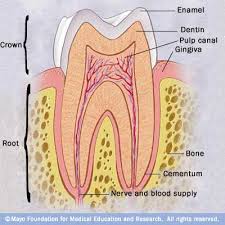The Importance of Omega-3 and Omega-6 Acids and How to Achieve a Healthy Balance
London, UK (PRWEB) December 20, 2014
Both omega-3s and omega-6s are essential fatty acids that your body can’t make, so you have to acquire them through your diet. Omega-3s and -6s compete for some of the same modification machinery. So if you eat an over-abundance of omega-6s, they interfere with your body’s ability to use omega-3s. Too much omega-6 and too little omega-3 are among the causes for many diseases in modern society. Let’s talk about how we can get the right amount of intake.
We need omega-3 fatty acids for numerous normal body functions, such as controlling blood clotting and building cell membranes in the brain. Omega-6 fatty acids are essential nutrients, abundant in the Western diet; common sources include safflower, corn, cottonseed, and soybean oils.
For now, experts on both sides of the issue agree that eating sources of omega-3 fats, mostly fish, is important, but many people aren’t getting the recommended levels of it. The current recommendation calls for two servings of a fatty fish such as salmon a week, as well as mackerel, herring, halibut and sardines. Shrimp, scallops and snapper also contain omega-3s. According to the University of Maryland Medical Center, omega-3 fats can help lower your cholesterol levels. Choices for vegetarians include flaxseed oil which contains about 55% omega-3 fats. Canola oil has about 10%. Soybean oil is about 7% omega-3 fats. Walnuts, olives, avocados and leafy green vegetables are also good sources of omega-3s.
“Omega-3 favorably affects a number of risk factors for cardiovascular disease, and at the top of the list is reducing the risk of sudden death from heart attack,” said Penny Kris Etherton, distinguished professor of nutrition at Pennsylvania State University.
Omega-3 concentrations are highest in the brain and nervous system. The fatty acids are necessary for optimal functioning of the neurons, protect cells, decrease cell death and improve nerve transmission. Emerging research indicates omega-3s may boost levels of the brain chemicals serotonin and dopamine, decreasing depression and violence.
“In 5 out of 6 of the clinical trials where people were given either a placebo or omega-3 fatty acids, on average, the symptoms of depression have been reduced by about 50 percent,” said Joseph Hibbeln, a psychiatrist at the National Institutes for Alcohol Abuse and Alcoholism.
“If you eat too much omega-6, as is the case with today’s American diet, this promotes inflammation, blood clotting and constricts blood vessels,” said Artemis Simopoulos, president of the Center for Genetics, Nutrition and Health and the author of “The Omega Diet” (Harper Collins, 1999). “When your cells contain equal amounts of omega-6 and omega-3, as was the case with early humans, this promotes less inflammation, less constrictive blood vessels and prevents clot formation, all important functions in preventing many diseases.”
Research has shown that the imbalance of omega-3 and omega-6 hormones increases the risk of developing cardiovascular disease and dying of a heart attack. It also increases the risk of developing a psychiatric disorder, Alzheimer’s disease, and obesity. Chronic inflammation caused by excessive omega-6 hormones increases the risk of every immune-inflammatory illness ranging from atherosclerosis, arthritis, and asthma to type-2 diabetes and irritable bowel syndrome. Omega imbalance can even result in bone loss, and increase the rate of cancer growth. So, what can we do to make sure the omegas are in check?
For most people it is easier to start by reducing some of their dietary choices. Try to limit these top sources of omega-6 fatty acids:
· Peanut and other nut butters
· Chips and buttered popcorn
· Take-out, and packaged foods
· Fried, battered chicken or fish
· Margarine and vegetable shortening
· Salad dressings … best choices are ones made with olive or canola oil
· Vegetable oils … best choices are olive, macadamia nut, and canola oils
Here are some suggestions on how to boost your omega-3 intake:
· Include as much fresh food as possible
· Eat an abundance of fruits and vegetables
· Read the labels – even if you are buying nuts, read the label look to see if they are processed with vegetable oil (corn, soy, cottonseed, grape seed, sunflower, safflower, etc), which loads them up with omega 6
· Aim for variety
· Eat seafood a couple of times per week
· Use Soya beans and tofu as meat replacements
Like most things in life, balance is everything. Most importantly, don’t completely avoid your necessary omega-6 intake, rather avoid any processed and packaged food for all types of health benefits and indulge in the variety of any fresh veggies, fish, and snacking on walnuts and fruits.
Sources:
http://umm.edu/health
http://www.webmd.com
http://www.livestrong.com
http://www.dailyperricone.com
http://www.anticancerbook.com
http://www.livescience.com
http://www.fitday.com
http://chriskresser.com
http://omega6.wellwise.org
http://organicvalley.custhelp.com
http://www.vitalchoice.com
![]() ©Copyright 1997-
©Copyright 1997-
, Vocus PRW Holdings, LLC.
Vocus, PRWeb, and Publicity Wire are trademarks or registered trademarks of Vocus, Inc. or Vocus PRW Holdings, LLC.
 Fat Burning Kitchen:Never count calories again
Fat Burning Kitchen:Never count calories again Low Glycemic Veggies
Low Glycemic Veggies 100% protein quinoa grain
100% protein quinoa grain Daily Antioxidant/Natural Remedies
Daily Antioxidant/Natural Remedies Get Truth About Healthy Teeth
Get Truth About Healthy Teeth Healthy Cooking
Healthy Cooking
Leave a Reply
You must be logged in to post a comment.